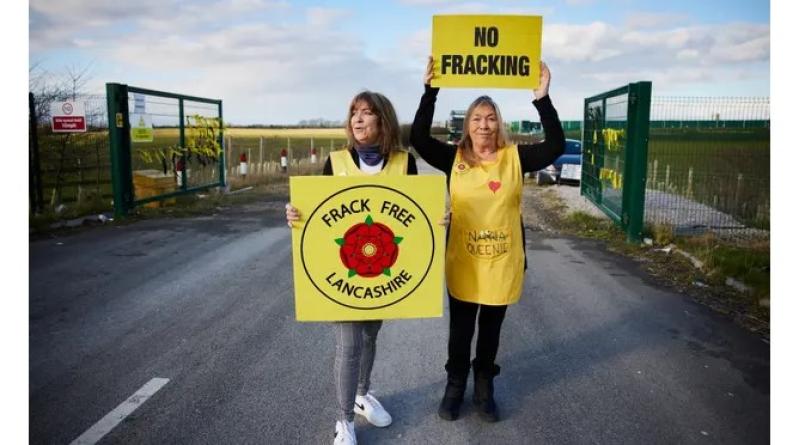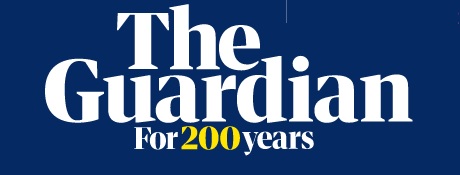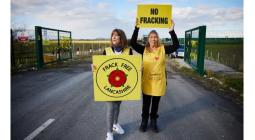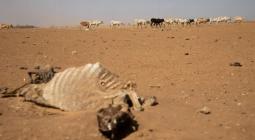Ban Ki-moon warns UK against fracking as world stands at ‘dangerous’ point

Former UN secretary general says countries face stark choices brought on by the war in Ukraine
The former UN secretary general has warned the UK against fracking, as the world stands at a “dangerous” point in the climate crisis, brought on by the invasion of Ukraine.
Ban Ki-moon, now deputy chair of the Elders group of former world statespeople and public figures, said countries faced stark choices as a result of the Ukraine war and energy crisis, and must embrace renewable energy instead of returning to fossil fuels.
“I think it’s dangerous – just look at the IPCC [Intergovernmental Panel on Climate Change] report,” he said, referring to the latest warning from scientists last month. “There is no time for us to lose. Even under normal conditions [before the Ukraine war] we were far behind the pace.”
He called on the Russian president, Vladimir Putin, to end the war. “President Putin, if he is a man of global vision, or humanity, or compassion, he must stop. Whatever grievances he may have and concerns he may have, he can negotiate later rather than killing people.”
He warned that the Ukraine war, as well as being “outrageous in the 21st century”, would have an impact on the climate crisis. Governments should not try to secure greater supplies of fossil fuels, he urged, as they sought alternatives to imports of Russian oil and gas, on which the EU, the US and the UK have now placed restrictions.
“This [war] will impact the international community’s effort to address climate issues, and the pandemic issues,” he said in an interview. “I am concerned that some European countries are even now considering how to address oil and energy shortages [by seeking] exports of some other [sources of] gas or oil. In the UK, there is some idea of releasing the ban on fracking. These are very short term, unproductive ideas.”
Fracking in the UK would be “not a good idea”, he added. “It’s very short term gain that will lose the long term interest of humanity. I hope the politicians have some longer vision for the benefit of the whole world.”
The UK government signalled this week that fracking was still a possibility, though an unlikely one. Ministers have come under pressure to back fracking, from some backbenchers and sections of the media, even though it is unlikely to be economically viable and would do nothing to ease the current crisis as it would take years to produce any gas.
Meanwhile, the EU set out plans last week to cut dependency on Russian oil and gas by two-thirds by the end of this year. Some of the slack will be taken up by seeking other suppliers, such as shipments of liquefied natural gas (LNG), and by an expansion of renewable energy and push for greater energy efficiency.
But expanding domestic fossil fuels, such as coal, may also be seen as a possibility if Vladimir Putin goes further and cuts off more supplies to Europe. Ban said that Germany, which has been phasing out coal, should not return to fossil fuels: “Germany is the biggest economic power in Europe – they should not take this as a kind of short term political gain.”
Ban also urged countries to consider nuclear energy, which he said would be a “wise choice”. He said: “There has been some debate and controversy on whether to use nuclear energy or not. But if we use a good energy mix, with renewable energy, nuclear energy and other clean sources of energy, that’s the way we can meet the target of carbon neutrality … We have to use nuclear energy.”
The war in Ukraine would affect preparations for Cop27, the next UN climate summit, set to take place in Egypt this November, he warned. “This is an issue for humanity and our planet Earth. This has nothing to do with politics,” said Ban. “But in reality this may be affected [by the war in Ukraine].”
Ban visited the UK on Friday to give a lecture at Oxford University and speak to Alok Sharma, the UK president of Cop26 who will continue to lead the UN negotiations until this November, but their meeting had to take place online because Sharma has contracted Covid-19.
Ban urged rich countries to prepare for Cop27 by providing more financial assistance to developing world governments to adapt to the impacts of climate breakdown, such as extreme weather, droughts, floods, heatwaves and sea level rises. “World leaders should really feel a sense of global responsibility, global justice and global humanity, and a sense of compassion for those people [affected by climate breakdown],” he said.
“We have to listen to the recommendations of the IPCC and the scientists. It’s much more important than politics,” he said.
Ban also said he was angry at countries’ handling of the Covid-19 pandemic in its early stages, seeing a “lack of multilateralism” in the approach countries took after the outbreak was confirmed. He was also scathing about the role of the World Bank in the pandemic, saying it had not done enough.
“This is a serious issue, this is a lack of multilateralism. So I am, as a former secretary general, really angry that we should suffer like this, because the initial preventive measures have not been taken properly,” he said.
Author: Fiona Harvey
Photograph: Christopher Thomond





